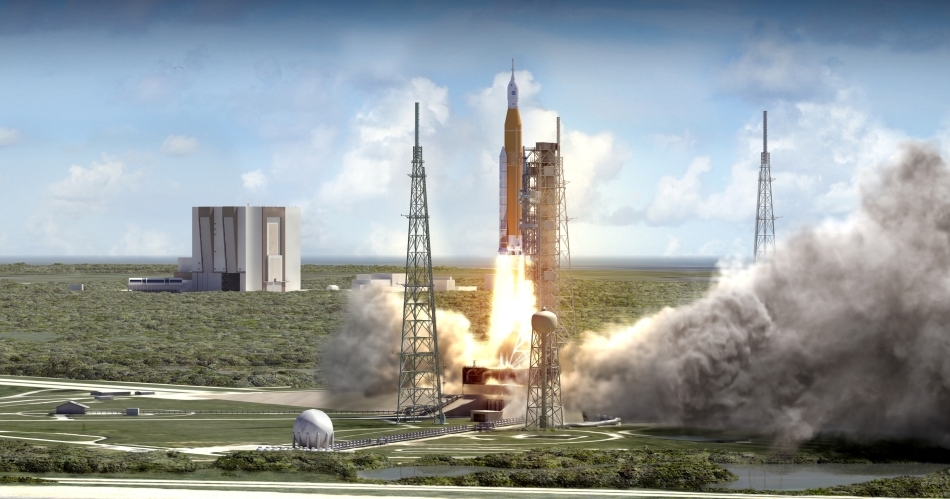NASA postpones launch of SLS rocket until 2019

SLS Block 1 start (illustration source: NASA)
Unfortunately, the first launch of the Space Launch System ( SLS ) heavy launch vehicle, which was scheduled for November 2018 (and before that - at the end of 2017), will be postponed to 2019. So far, the project team is talking about the possible launch of the rocket at the beginning of 2019, but everything can change and the carrier will fly even later.
Postponing the start to a later date is an already resolved question, confirmed by both the research team of the project and the administrators from the US Chamber of Accounts. "We agree with the Accounts Chamber in terms of supporting the rocket launch plan in 2018 not the task that should be performed at any cost, so now we are in the process of choosing a new date for 2019," said the head of NASA for manned programs William Gerstenmeyer.
The decision was made with an eye to the problems of various nature with the rocket itself, the Orion and the launch pad. According to Gerstenmeyer, the launch is postponed so that the agency has time to fix all the current problems that have accumulated a lot.
')
By the way, initially NASA planned to conduct the first flight of the rocket, called the Exploration Mission-1 (EM-1), in automatic mode. Somewhat later, experts began to consider launching with a crew aboard. About this NASA asked the White House.
“We recognize that the risk will be increased,” says William Gerstenmeyer. “We accept this risk and want to compare it with possible benefits.”
In connection with the planning of the first flight with a team on board NASA, a number of additional work is needed. For example, it is necessary at a rapid pace to finalize the upper rocket stage for a manned flight and add a life support system for astronauts. In addition, it is necessary to add many elements of the life support system to the Orion capsule. "We will have to disassemble what has already been done and modify the system to add the life support system that is needed for the flight," says Jason Crusan, the head of one of the NASA units.
In addition, on February 7, a tornado went through the rocket assembly area, which damaged several structures of the site itself and the rocket. Nothing particularly critical has happened, but it takes time and also money to repair and update the availability of systems. With money, everything is difficult here, because, according to the agency, it may take up to a half billion US dollars.
After analyzing all these problems, the Accounts Chamber of the United States, together with the NASA administration, concluded that by 2018 the project team would not be controlled, so the first start would have to be postponed. The exact new date is not defined, as mentioned above, but it is already clear that this will not be the year 2018.
Source: https://habr.com/ru/post/403505/
All Articles